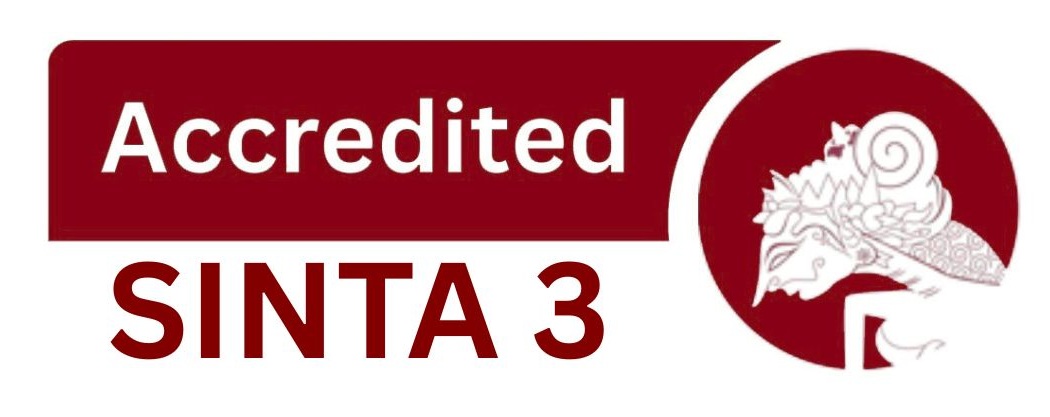ANGER EXPRESSIVE USED BY THE CHARACTERS IN THE CHRONICLES OF NARNIA SERIES 1
Keywords:
Anger, Expressive, Movie, Pragmatic, Speech ActAbstract
The aims of this study are to investigate the pragmalinguistic forms of anger and to describe the intentions of the anger expressions shown by the characters in the Narnia 1 movie. This research is qualitative research. The data from this study are all conversations that express anger in the Narnia Series 1. In collecting data, researchers used the documentation method. The data were analyzed using Madow's theory of pragmalinguistic forms of anger expressive and Leech's theory of speaking situations. The results of this study indicate that there are three pragmalinguistic forms of angry expressions used by the characters. The forms of the anger expressive are the direct form (26), the vague form (12), and the indirect form (1). The results of this study also show that there are eleven meanings of angry expressions. They are questioning (5), asserting (11), commanding (5), criticizing (2), mocking (5), disbelieving (2), ordering (1), suggesting (1), disagreeing (2), warning (3), and declaring (2). Thus, it can be concluded that direct form of anger is the form that appears the most in Narnia movie and asserting is the most dominant intention used by the characters in Narnia movie
References
Ary, D., Jacobs, L. C., Razavieh, A., & Sorensen, C. (2006). Introduction to research in education: Thomson Wadsworth. Belmont, CA.
Carter, N., Bryant-Lukosius, D., Dicenso, A., Blythe, J., & Neville, A. J. (2014). The use of triangulation in qualitative research. Oncology Nursing Forum, 41(5), 545–547. https://doi.org/10.1188/14.ONF.545-547
Cutting, J., & Fordyce, K. (2020). Pragmatics: a resource book for students. Routledge.
Ekawati, R., & Ariatmi, S. Z. (2018). Pragmatic Analysis of Anger Expression Used by Netizen On Rohingya Refugees In Website (Doctoral dissertation, Universitas Muhammadiyah Surakarta).
Indrianingsih, E., & Ariatmi, S. Z. (2017). A pragmalinguistics analysis of anger expressions in the crime movies (Doctoral dissertation, Universitas Muhammadiyah Surakarta).
Leech. (1985). Principles of pragmatics. Journal of Linguistics, 21(2), 459-470.
Lestari, T., & Hartati, E. (2020). A Pragmatics Analysis of Speech Act in Thor Movie. ELTICS : Journal of English Language Teaching and English Linguistics, 4(2), 47–59. https://doi.org/10.31316/eltics.v4i2.524
Mulianti, E. S. (2017). Pengembangan media pembelajaran Pop-Up Book pembelajaran matematika kelas II MI Ma’arif BEGO Maguwoharjo sleman Yogyakarta (Doctoral dissertation, UIN Sunan Kalijaga Yogyakarta).
Nissa, R. (2022). An Expressive Speech Acts Analysis on Anger Expression Found in Comment to Puan Maharani’s Account Instagram.
Pakpahan, S. D., & Manik, D. A. T. (2020). Analysis of Speech Act in the Film Fumiko No Kokuhaku By Hiroyasu Ishida. Jurnal Pendidikan Bahasa Jepang Undiksha, 6(2), 203. https://doi.org/10.23887/jpbj.v6i2.26149
Patton, M. Q. (1999). Enhancing the quality and credibility of qualitative analysis. Health services research, 34(5 Pt 2), 1189.
Sabrian, R., Sastra, G., & Revita, I. (2019). Women's Speech In A State of Anger: A Neuropragmatic Study. Jurnal Arbitrer, 6(1), 15-27.
Sina, M. W., & Bram, B. (2020). Expressive speech acts of the main character in Harry Potter movie as teaching materials for EFL learners. PARAFRASE : Jurnal Kajian Kebahasaan & Kesastraan, 20(1), 2580–5886.
Tucker-Ladd, C. (1996). Psychological self-help. Clay Tucker-Ladd.
Violeta, R. (2019). Speech acts analysis of the main character in maleficent movie script by Jane Mctee (Doctoral dissertation, UIN Raden Intan Lampung).
Yule, G. (1996). Pragmatics. Oxford university press.
Downloads
Published
Issue
Section
License

This work is licensed under a Creative Commons Attribution-ShareAlike 4.0 International License.
The author is responsible for acquiring the permission(s) to reproduce any copyrighted figures, tables, data, or text that are being used in the submitted paper. Authors should note that text quotations of more than 250 words from a published or copyrighted work will require grant of permission from the original publisher to reprint. The written permission letter(s) must be submitted together with the manuscript.











